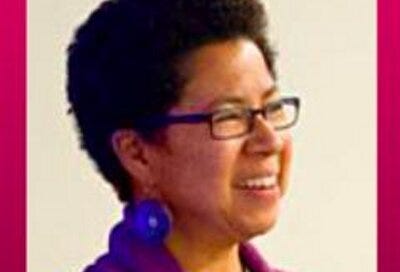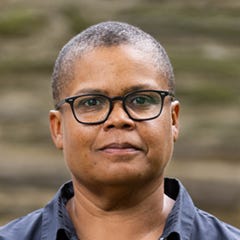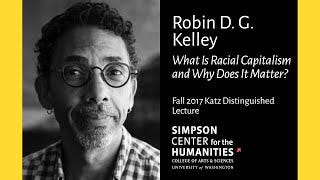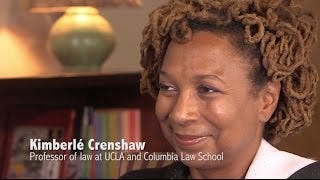Last August the College Board announced the upcoming launch of a new Advanced Placement course on African American studies. Even before the course documents became public, Florida Governor Ron DeSantis, joined by an echo chamber of right-wing culture warriors, denounced the new curriculum as "woke."
The final version was published on February 1, the first day of Black History Month. But it excluded the original final chapter on current racial issues, which had cited many prominent Black Studies scholars. Both the New York Times and Washington Post ran articles on February 1, prompting a denial from the College Board that they had caved to the pressure. According to their press release, the revisions were just part of the normal process for developing and editing a curriculum.
Many of the scholars spoke out eloquently on the role of Black Studies in illuminating fundamental issues of the history of this country. Press coverage centered on DeSantis and whether the Board had or had not caved in the face of his attack.
So far, there has been little investigation into basic factual questions about the missing final chapter (the 5 Ws of journalism):
Who (within the College Board) made the decision to cut the chapter?
What other changes were made, if any?
When (and over what time period) did this happen?
Where (headquarters staff? Zoom call with board?)
Why (motives? explanations?)
A leak of correspondence between the Board and the Florida Department of Education on February 9 may spark more in-depth journalistic initiatives and focused public demands. See this on the previous record of controversial decisions by CEO David Coleman. For the year 2020, Coleman's annual compensation was over $2.5 million.
As a minimum first step towards accountability, we should demand that the public should have access to the original draft that was censored so that any of us can compare the documents and see exactly what was changed. If anyone knows where to find a copy of that draft, please make it public. I have been unable to find it with web searches. The revised course is available on the College Board website as a pdf file.
Meanwhile, we should listen to Black Studies scholars who have weighed in on the controversy. Among the most cogent responses that I have read are the following (with snippets only and web links).
"Racism is part and parcel of capitalism, rooted in slavery and genocide of Black and Indigenous people. Telling lies about those people — erasing who and what they/we really were — was a necessary corollary to land theft, genocide, kidnapping and enslavement. Maintaining those lies today is integral to upholding racial capitalism."
"They had a piloted course that was being circulated among many schools, dozens of schools — I think it’s 60 schools around the country. It’s totally believable that, through that process, they decided that things needed to be removed from the course, that it needed to be revised in some way, that it needed to be tightened up. That is the purpose of having a pilot in the first place. But what is not believable is that the political atmosphere had no bearing on their decisions about what to revise and the ways in which they revised it."
"The way that we teach it ... is really about examining Black lives: the structures that produce premature death, that make us vulnerable; the ideologies that both invent Blackness and render Black people less than human; and, perhaps most important, the struggle to secure a different future. ... It’s about interrogating racial categories, understanding the persistence of inequality ... [A]s a scholarly endeavor, it tries to understand how Black people came into being in the modern world—how that process through kidnapping, enslavement, the extraction of labor, the extraction of ideas, was foundational to the modern world. And, finally, the way that African people really tried to remake and re-envision that world.... And that’s not really in this curriculum."
"You don’t become a billion-dollar corporation by not paying attention to the market. And the market indicators told the College Board that this new course that they were hoping to promote — and, interestingly enough, the opportunity for the course came after the George Floyd activation drove so many people in the streets, and they were demanding more information about structural racism, more information about intersectionality, more information about implicit bias. The same motivation that made people demand it also sparked a backlash and this legislation. So, of course the College Board knew about it. Of course the College Board had to take some kind of awareness."
Also worth checking out
W.E.B. Du Bois, Black History Month and the importance of African American studies
Sign the petition to Congress: Push back against state attempts to ban Black history
Finally, a note about bell hooks (1952-2021), who did not live long enough to speak in this debate. Growing up Black and poor in rural eastern Kentucky and at her death Distinguished Professor at Berea College, she was an author whose insights were deeply rooted in her own experience. She wrote clearly for readers beyond the ivory towers of academia. I am only now finding time to read her books. But I have long been aware of her and of Berea College, since my grandmother's nephew Charles Rayburn also found his way out of poverty in eastern Kentucky through Berea and into a long career as a physicist and an inventor.
P.S. from the Editor
For those already subscribed to AfricaFocus Bulletin, this will be your first post received through Substack rather than Mailchimp. My plan is to continue the transition over the next few weeks, and these new posts will also be published a few days later using Mailchimp. But Mailchimp will be discontinued sometime in mid or late March.
I encourage you to unsubscribe from Mailchimp (I will send detailed instructions later). And I hope you find the new format equivalent or better. It is definitely much easier for me to manage. And it has the advantage of being free for me, in comparison to the $80/month I now pay for Mailchimp to service 2,179 subscribers.
AfricaFocus Notes, like the Bulletin, will be freely available to all. No substantive content produced will be reserved to paid subscribers. I may provide some “perks” at some future date. But for now the only incentive to become a paid subscriber will be your wish to support this work and other work I am doing.
Thank to those of you who have provided financial support through voluntary subscription payments over many years. But I am also grateful to a high proportion of you, many of whom are my friends and colleagues, for sharing your expertise and experience to help me in understanding the complex realities of Africa, the world, and the United States.
And, of course, for sharing my conviction that we must not only understand these realities but do what we can to change them.
Bill (William) Minter
Editor, AfricaFocus Notes








Horrible about college studies of course. Also it is terrible to see the primary teachers with a list of banned books. If they allow their students to reach those books, they face a fine AND a possible felony charge. Hard to believe this is happening. The book shelves are taped over and the kids are confused.